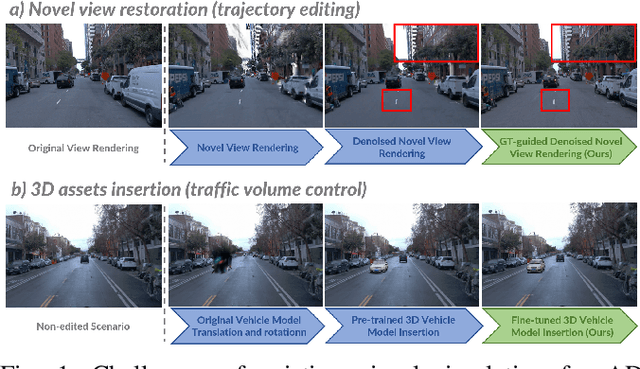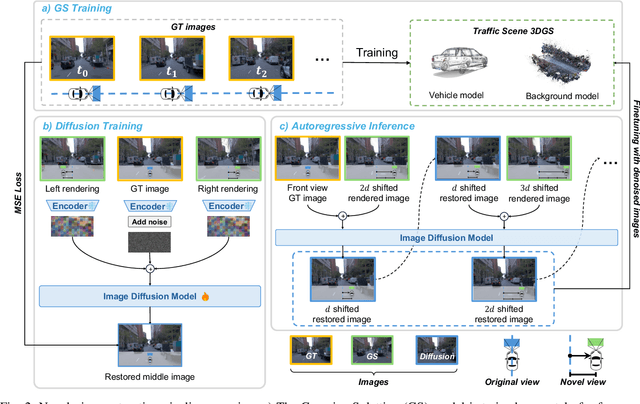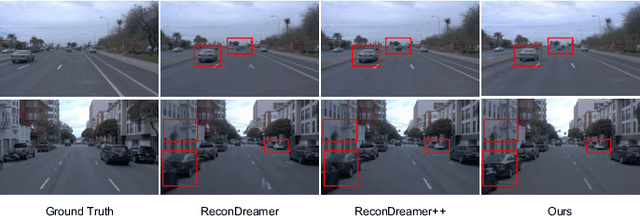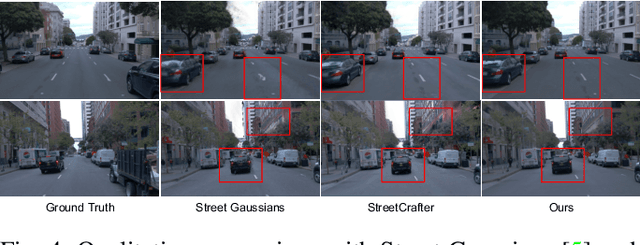Zhiyuan Liu
Tsinghua University
Towards a Science of Collective AI: LLM-based Multi-Agent Systems Need a Transition from Blind Trial-and-Error to Rigorous Science
Feb 05, 2026Abstract:Recent advancements in Large Language Models (LLMs) have greatly extended the capabilities of Multi-Agent Systems (MAS), demonstrating significant effectiveness across a wide range of complex and open-ended domains. However, despite this rapid progress, the field still relies heavily on empirical trial-and-error. It lacks a unified and principled scientific framework necessary for systematic optimization and improvement. This bottleneck stems from the ambiguity of attribution: first, the absence of a structured taxonomy of factors leaves researchers restricted to unguided adjustments; second, the lack of a unified metric fails to distinguish genuine collaboration gain from mere resource accumulation. In this paper, we advocate for a transition to design science through an integrated framework. We advocate to establish the collaboration gain metric ($Γ$) as the scientific standard to isolate intrinsic gains from increased budgets. Leveraging $Γ$, we propose a factor attribution paradigm to systematically identify collaboration-driving factors. To support this, we construct a systematic MAS factor library, structuring the design space into control-level presets and information-level dynamics. Ultimately, this framework facilitates the transition from blind experimentation to rigorous science, paving the way towards a true science of Collective AI.
Let Experts Feel Uncertainty: A Multi-Expert Label Distribution Approach to Probabilistic Time Series Forecasting
Feb 04, 2026Abstract:Time series forecasting in real-world applications requires both high predictive accuracy and interpretable uncertainty quantification. Traditional point prediction methods often fail to capture the inherent uncertainty in time series data, while existing probabilistic approaches struggle to balance computational efficiency with interpretability. We propose a novel Multi-Expert Learning Distributional Labels (LDL) framework that addresses these challenges through mixture-of-experts architectures with distributional learning capabilities. Our approach introduces two complementary methods: (1) Multi-Expert LDL, which employs multiple experts with different learned parameters to capture diverse temporal patterns, and (2) Pattern-Aware LDL-MoE, which explicitly decomposes time series into interpretable components (trend, seasonality, changepoints, volatility) through specialized sub-experts. Both frameworks extend traditional point prediction to distributional learning, enabling rich uncertainty quantification through Maximum Mean Discrepancy (MMD). We evaluate our methods on aggregated sales data derived from the M5 dataset, demonstrating superior performance compared to baseline approaches. The continuous Multi-Expert LDL achieves the best overall performance, while the Pattern-Aware LDL-MoE provides enhanced interpretability through component-wise analysis. Our frameworks successfully balance predictive accuracy with interpretability, making them suitable for real-world forecasting applications where both performance and actionable insights are crucial.
SE-Bench: Benchmarking Self-Evolution with Knowledge Internalization
Feb 04, 2026Abstract:True self-evolution requires agents to act as lifelong learners that internalize novel experiences to solve future problems. However, rigorously measuring this foundational capability is hindered by two obstacles: the entanglement of prior knowledge, where ``new'' knowledge may appear in pre-training data, and the entanglement of reasoning complexity, where failures may stem from problem difficulty rather than an inability to recall learned knowledge. We introduce SE-Bench, a diagnostic environment that obfuscates the NumPy library and its API doc into a pseudo-novel package with randomized identifiers. Agents are trained to internalize this package and evaluated on simple coding tasks without access to documentation, yielding a clean setting where tasks are trivial with the new API doc but impossible for base models without it. Our investigation reveals three insights: (1) the Open-Book Paradox, where training with reference documentation inhibits retention, requiring "Closed-Book Training" to force knowledge compression into weights; (2) the RL Gap, where standard RL fails to internalize new knowledge completely due to PPO clipping and negative gradients; and (3) the viability of Self-Play for internalization, proving models can learn from self-generated, noisy tasks when coupled with SFT, but not RL. Overall, SE-Bench establishes a rigorous diagnostic platform for self-evolution with knowledge internalization. Our code and dataset can be found at https://github.com/thunlp/SE-Bench.
CPMobius: Iterative Coach-Player Reasoning for Data-Free Reinforcement Learning
Feb 03, 2026Abstract:Large Language Models (LLMs) have demonstrated strong potential in complex reasoning, yet their progress remains fundamentally constrained by reliance on massive high-quality human-curated tasks and labels, either through supervised fine-tuning (SFT) or reinforcement learning (RL) on reasoning-specific data. This dependence renders supervision-heavy training paradigms increasingly unsustainable, with signs of diminishing scalability already evident in practice. To overcome this limitation, we introduce CPMöbius (CPMobius), a collaborative Coach-Player paradigm for data-free reinforcement learning of reasoning models. Unlike traditional adversarial self-play, CPMöbius, inspired by real world human sports collaboration and multi-agent collaboration, treats the Coach and Player as independent but cooperative roles. The Coach proposes instructions targeted at the Player's capability and receives rewards based on changes in the Player's performance, while the Player is rewarded for solving the increasingly instructive tasks generated by the Coach. This cooperative optimization loop is designed to directly enhance the Player's mathematical reasoning ability. Remarkably, CPMöbius achieves substantial improvement without relying on any external training data, outperforming existing unsupervised approaches. For example, on Qwen2.5-Math-7B-Instruct, our method improves accuracy by an overall average of +4.9 and an out-of-distribution average of +5.4, exceeding RENT by +1.5 on overall accuracy and R-zero by +4.2 on OOD accuracy.
EvoOpt-LLM: Evolving industrial optimization models with large language models
Feb 01, 2026Abstract:Optimization modeling via mixed-integer linear programming (MILP) is fundamental to industrial planning and scheduling, yet translating natural-language requirements into solver-executable models and maintaining them under evolving business rules remains highly expertise-intensive. While large language models (LLMs) offer promising avenues for automation, existing methods often suffer from low data efficiency, limited solver-level validity, and poor scalability to industrial-scale problems. To address these challenges, we present EvoOpt-LLM, a unified LLM-based framework supporting the full lifecycle of industrial optimization modeling, including automated model construction, dynamic business-constraint injection, and end-to-end variable pruning. Built on a 7B-parameter LLM and adapted via parameter-efficient LoRA fine-tuning, EvoOpt-LLM achieves a generation rate of 91% and an executability rate of 65.9% with only 3,000 training samples, with critical performance gains emerging under 1,500 samples. The constraint injection module reliably augments existing MILP models while preserving original objectives, and the variable pruning module enhances computational efficiency, achieving an F1 score of ~0.56 on medium-sized LP models with only 400 samples. EvoOpt-LLM demonstrates a practical, data-efficient approach to industrial optimization modeling, reducing reliance on expert intervention while improving adaptability and solver efficiency.
Hybrid Linear Attention Done Right: Efficient Distillation and Effective Architectures for Extremely Long Contexts
Jan 29, 2026Abstract:Hybrid Transformer architectures, which combine softmax attention blocks and recurrent neural networks (RNNs), have shown a desirable performance-throughput tradeoff for long-context modeling, but their adoption and studies are hindered by the prohibitive cost of large-scale pre-training from scratch. Some recent studies have shown that pre-trained softmax attention blocks can be converted into RNN blocks through parameter transfer and knowledge distillation. However, these transfer methods require substantial amounts of training data (more than 10B tokens), and the resulting hybrid models also exhibit poor long-context performance, which is the scenario where hybrid models enjoy significant inference speedups over Transformer-based models. In this paper, we present HALO (Hybrid Attention via Layer Optimization), a pipeline for distilling Transformer models into RNN-attention hybrid models. We then present HypeNet, a hybrid architecture with superior length generalization enabled by a novel position encoding scheme (named HyPE) and various architectural modifications. We convert the Qwen3 series into HypeNet using HALO, achieving performance comparable to the original Transformer models while enjoying superior long-context performance and efficiency. The conversion requires just 2.3B tokens, less than 0.01% of their pre-training data
Spava: Accelerating Long-Video Understanding via Sequence-Parallelism-aware Approximate Attention
Jan 29, 2026Abstract:The efficiency of long-video inference remains a critical bottleneck, mainly due to the dense computation in the prefill stage of Large Multimodal Models (LMMs). Existing methods either compress visual embeddings or apply sparse attention on a single GPU, yielding limited acceleration or degraded performance and restricting LMMs from handling longer, more complex videos. To overcome these issues, we propose Spava, a sequence-parallel framework with optimized attention that accelerates long-video inference across multiple GPUs. By distributing approximate attention, Spava reduces computation and increases parallelism, enabling efficient processing of more visual embeddings without compression and thereby improving task performance. System-level optimizations, such as load balancing and fused forward passes, further unleash the potential of Spava, delivering speedups of 12.72x, 1.70x, and 1.18x over FlashAttn, ZigZagRing, and APB, without notable performance loss. Code available at https://github.com/thunlp/APB
LinguaGame: A Linguistically Grounded Game-Theoretic Paradigm for Multi-Agent Dialogue Generation
Jan 08, 2026Abstract:Large Language Models (LLMs) have enabled Multi-Agent Systems (MASs) where agents interact through natural language to solve complex tasks or simulate multi-party dialogues. Recent work on LLM-based MASs has mainly focused on architecture design, such as role assignment and workflow orchestration. In contrast, this paper targets the interaction process itself, aiming to improve agents' communication efficiency by helping them convey their intended meaning more effectively through language. To this end, we propose LinguaGame, a linguistically-grounded game-theoretic paradigm for multi-agent dialogue generation. Our approach models dialogue as a signalling game over communicative intents and strategies, solved with a training-free equilibrium approximation algorithm for inference-time decision adjustment. Unlike prior game-theoretic MASs, whose game designs are often tightly coupled with task-specific objectives, our framework relies on linguistically informed reasoning with minimal task-specific coupling. Specifically, it treats dialogue as intentional and strategic communication, requiring agents to infer what others aim to achieve (intents) and how they pursue those goals (strategies). We evaluate our framework in simulated courtroom proceedings and debates, with human expert assessments showing significant gains in communication efficiency.
UltraEval-Audio: A Unified Framework for Comprehensive Evaluation of Audio Foundation Models
Jan 04, 2026Abstract:The development of audio foundation models has accelerated rapidly since the emergence of GPT-4o. However, the lack of comprehensive evaluation has become a critical bottleneck for further progress in the field, particularly in audio generation. Current audio evaluation faces three major challenges: (1) audio evaluation lacks a unified framework, with datasets and code scattered across various sources, hindering fair and efficient cross-model comparison;(2) audio codecs, as a key component of audio foundation models, lack a widely accepted and holistic evaluation methodology; (3) existing speech benchmarks are heavily reliant on English, making it challenging to objectively assess models' performance on Chinese. To address the first issue, we introduce UltraEval-Audio, a unified evaluation framework for audio foundation models, specifically designed for both audio understanding and generation tasks. UltraEval-Audio features a modular architecture, supporting 10 languages and 14 core task categories, while seamlessly integrating 24 mainstream models and 36 authoritative benchmarks. To enhance research efficiency, the framework provides a one-command evaluation feature, accompanied by real-time public leaderboards. For the second challenge, UltraEval-Audio adopts a novel comprehensive evaluation scheme for audio codecs, evaluating performance across three key dimensions: semantic accuracy, timbre fidelity, and acoustic quality. To address the third issue, we propose two new Chinese benchmarks, SpeechCMMLU and SpeechHSK, designed to assess Chinese knowledge proficiency and language fluency. We wish that UltraEval-Audio will provide both academia and industry with a transparent, efficient, and fair platform for comparison of audio models. Our code, benchmarks, and leaderboards are available at https://github.com/OpenBMB/UltraEval-Audio.
SymDrive: Realistic and Controllable Driving Simulator via Symmetric Auto-regressive Online Restoration
Dec 25, 2025



Abstract:High-fidelity and controllable 3D simulation is essential for addressing the long-tail data scarcity in Autonomous Driving (AD), yet existing methods struggle to simultaneously achieve photorealistic rendering and interactive traffic editing. Current approaches often falter in large-angle novel view synthesis and suffer from geometric or lighting artifacts during asset manipulation. To address these challenges, we propose SymDrive, a unified diffusion-based framework capable of joint high-quality rendering and scene editing. We introduce a Symmetric Auto-regressive Online Restoration paradigm, which constructs paired symmetric views to recover fine-grained details via a ground-truth-guided dual-view formulation and utilizes an auto-regressive strategy for consistent lateral view generation. Furthermore, we leverage this restoration capability to enable a training-free harmonization mechanism, treating vehicle insertion as context-aware inpainting to ensure seamless lighting and shadow consistency. Extensive experiments demonstrate that SymDrive achieves state-of-the-art performance in both novel-view enhancement and realistic 3D vehicle insertion.
 Add to Chrome
Add to Chrome Add to Firefox
Add to Firefox Add to Edge
Add to Edge